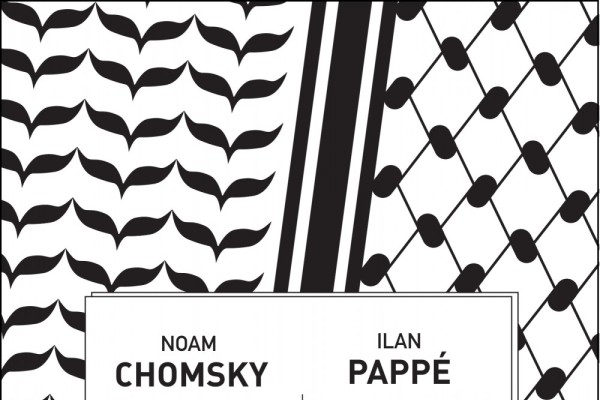The left must fight the IHRA definition of antisemitism
Clarke: It’s time to confront the slanders and, in a spirit of solidarity with the Palestinian struggle, accuse the accusers

Man blows a shofar at a rally in London against anti-Semitism in the UK Labour Party. Photo by Getty Images.
Bill 168, the Combating Antisemitism Act, was introduced in the Ontario Legislature last December by Tory MPP Will Bouma. On February 27, it was approved on second reading by a vote of 55-0 and will now go to the standing committee on justice policy for review and public input before a final vote. While most of its caucus was not present in the legislative chambers for the vote, the NDP didn’t mount an opposition to this measure and this is enormously disappointing, to say the least. If the bill is adopted, the Ontario government will be guided by the definition of antisemitism put forward by the International Holocaust Remembrance Alliance (IHRA). Israel’s supporters are engaged in a major international drive to have this definition endorsed by governments at all levels as well as public institutions. Those who support the struggle for Palestinian freedom and many who defend the right to free expression are justifiably opposed to this.
No decent person would object to any honest effort to combat antisemitism but the examples given in the definition are mainly focused on criticism of Israel. Probably the most problematic of them suggests that “claiming that the existence of a state of Israel is a racist endeavour” is evidence of antisemitism. Palestinian people, living under occupation or in exile, might well consider themselves the victims of a racist and colonial project and it is utterly unjustified to assert that they or those who share their view are antisemites. Bill 168 takes us in the direction of treating valid political opinions as hate speech.
Lessons from the UK
In the UK, the IHRA definition has been imposed on public and political life as a disruptive and destructive force. The UK government adopted the definition in 2016 and has worked to ensure that public bodies fall in line. As of December of last year, 136 of the 343 councils in England had agreed to accept the IHRA definition when dealing with allegations of antisemitism. Just how chilling an effect this has had can be gauged from the example of Tower Hamlets Council, in London, which last year refused to host a charitable event in aid of Palestinian children because its “political connotations” might breach “antisemitism guidelines.”
The effort to extend the reach of the IHRA definition in the UK continues. Last September, the government’s Communities Secretary, Robert Jenrick, indicated he would write to councils demanding that they adopt the International Holocaust Remembrance Alliance (IHRA) working definition of antisemitism “as a matter of urgency.” Jenrick went on to threaten that universities that failed to adopt the definition might face funding cuts. In this political climate, the Labour Party, even under the progressive leadership of Jeremy Corbyn, adopted the definition, in a futile effort to escape relentless accusations of antisemitism from supporters of Israel. It is necessary to say that the continuing and worsening retreat and capitulation of the left within the leadership of the Labour Party, in the face of a barrage of false accusations of antisemitism, represents an object lesson in how not to respond to such an attack. Every futile effort to appease the accusers on the right has weakened the left and only increased the boldness with which they hurl their unjustified charges.
At a time when Labour, under the leadership of Jeremy Corbyn, with its membership enormously rejuvenated, posed the prospect of an alternative to the austerity consensus, the party was seriously disrupted by the weaponization of antisemitism. The British establishment, the mainstream media (including its liberal wing) and the Labour right, spared no effort to ensure this disruption was taken to extremes. Corbyn was personally attacked, the charge that Labour was “institutionally antisemitic” was repeated at every turn, and longstanding and devoted activists were driven from the party.
The huge setback suffered by Labour in the last election had much more to do with the way Brexit was handled than did the antisemitism smear, but retreats and needless apologies on the issue were massively demoralizing and contributed to a lack of confidence in the Corbyn leadership. Now that Corbyn is stepping down, however, and a leadership election is unfolding, the tragic reality is that entirely the wrong lessons have been learned. The climate of accusation and persecution within Labour has not abated. Recently, a left-wing Jewish Labour councillor with a history of Palestine solidarity, Jo Bird, was suspended from membership, even as she ran for Labour’s national executive. Only vigorous grass roots efforts forced the reversal of this decision.
It seems, however, that capitulation is being taken to a new level. The Zionist Board of Deputies has drawn up an already infamous “Ten Pledges to End the Antisemitism Crisis” or, as they have put it, “10 key points we believe Labour needs to sign up to in order to begin healing its relationship with the Jewish community.” It is, essentially, a set of measures that “entail surrendering the party’s independence and integrity as a political organisation…” as Sheffield Labour Friends of Palestine have put it. These include a commitment ‘to engage with the Jewish community via its “main representative groups and not through fringe organisations.” To remove any doubt, the Board of Deputies names, as part of this “fringe,” Jewish Voice for Labour, a group of Jewish Labour Party members who supported the Corbyn leadership and challenged the right-wing smears. The pledges include delivering an anti-racism education program that has the approval of the Zionist Jewish Labour Movement and, for good measure, the reaffirmation of support for the IHRA definition of antisemitism “with all its examples and clauses and without any caveats.”
For those on the Labour right, who are only too happy to ally themselves with the Zionist state and its allies, the adoption of the 10 pledges might be understandable. However, quite astoundingly, the left-wing candidate in the leadership election, “continuity socialist” Rebecca Long-Bailey, has joined all of her rivals in agreeing to this outrage. In line with the logic of this capitulation, she also attended a gathering of the Jewish Labour Movement (JLM) and Labour Friends of Israel and dutifully declared herself to be a Zionist.
An alternative for the left
The tragic humiliation of the British Labour Party offers us lessons on the seriousness of the weaponization of antisemitism and the dire consequences of caving into it. The drive to have the IHRA definition raised to the level of a binding obligation on public bodies is underway throughout Canada, and the definition has, indeed, been adopted by the Trudeau government at the federal level, as part of an anti-racism strategy. However, it is meeting with strong opposition. Local councils in Vancouver, Calgary and Montreal have chosen not to adopt the definition, in the face of community mobilization against it, spearheaded by Independent Jewish Voices Canada. The NDP caucus in the Ontario Legislature chose to capitulate, and federal NDP leader Jagmeet Singh seems to be intimidated and reluctant to question the IHRA definition or to raise a voice for Palestine. Still, there is another way to proceed in the face of this right-wing bullying.
The chief prosecutor for the International Criminal Court, Fatou Bensouda, is likely not a radical leftist. However, when faced with allegations of “pure antisemitism” from Benjamin Netanyahu over her decision to “investigate possible war crimes committed in Gaza, the West Bank and East Jerusalem,” she responded with a firmness that many on the left would do well to take to heart. “This is a particularly regrettable accusation that is without merit,” she told the Times of Israel, adding, for good measure, that “This of course was anticipated, as it is a standard tactic to discredit someone who makes an accusation or takes a contrary position.”
Unlike many on the left in the Labour Party or in the leadership of the NDP, Bensouda understands that running away is a very poor way of trying to stop someone from chasing you. It really should not be that hard for those on the left to take a principled position of solidarity with the Palestinian people, while firmly rejecting the assertion that this is motivated by a hatred of Jewish people. At the same time, with real antisemitism on the rise, it should also be easy—and it is entirely necessary—for the left to take up and lead the fight against it. For that to happen, we have to challenge the falsehood that Palestine solidarity movements are the source of antisemitism and deal with the reality that it is proliferating on the right, as part of a resurgence of racism and white supremacy.
As Israel’s leaders move to complete their colonial project–with Trump’s ‘Deal of the Century’ clearing the way for them–and impose something akin to the bantustans of South African apartheid on the Palestinians, the left can’t allow itself to be bullied by the false and cynical allegation of antisemitism. To acquiesce in the face of the disruptive and dangerous IHRA definition or, even, to support its adoption, is utterly unacceptable. It’s high time to confront the slanders and, in a spirit of solidarity with the Palestinian struggle, accuse the accusers.
John Clarke is a writer and retired organizer for the Ontario Coalition Against Poverty (OCAP). Follow his tweets at @JohnOCAP and blog at johnclarkeblog.com.










